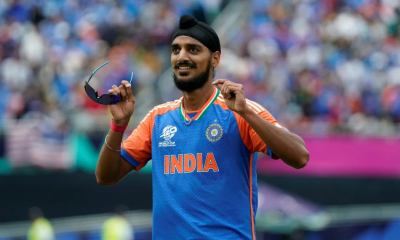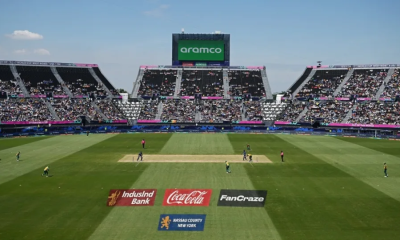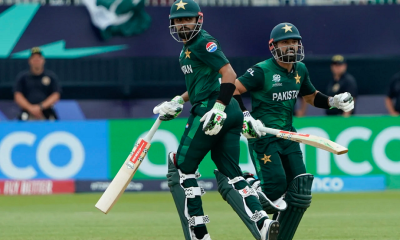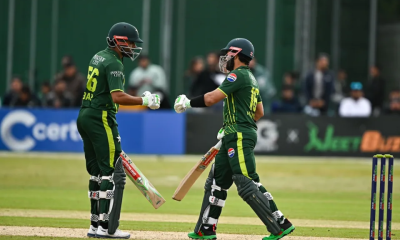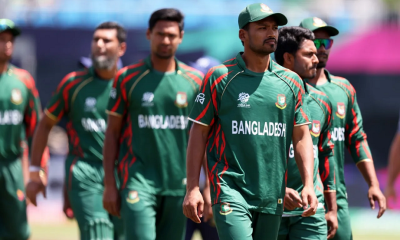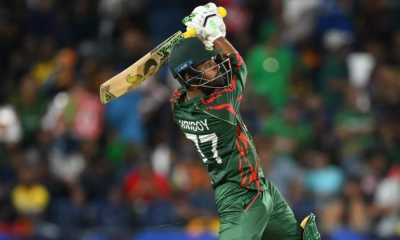Foreign News
Have Trump prosecutors made their case at hush-money trial?
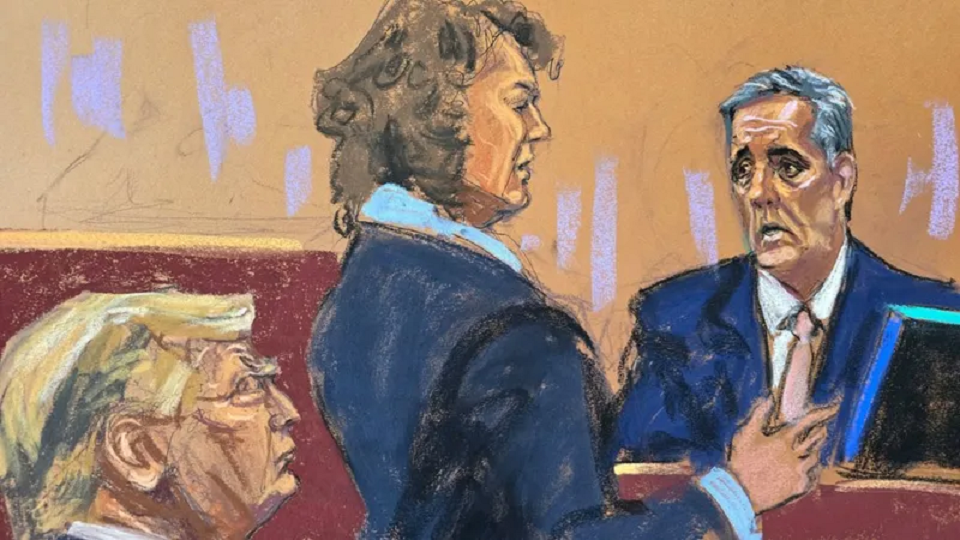
For nearly four weeks, Donald Trump has sat quietly in a New York courtroom while state prosecutors laid out the first-ever criminal case against a former US president.
Lawyers from the Manhattan District Attorney’s Office have called on a cast of blockbuster witnesses and produced dozens of surreptitiously recorded conversations and documents to help corroborate their case.
They allege Mr Trump directed a hush-money payment to an adult-film star in 2016 to avoid a sex scandal he feared would derail his presidential campaign – and then authorised an illegal reimbursement scheme to cover it up. Mr Trump denies 34 counts of falsifying business records.
The prosecution’s final witness, Michael Cohen, will face further cross-examination on Monday before Trump’s lawyers get an opportunity to present his defence.
Legal experts say the prosecution has done an efficient job. But even with solid evidence and testimony, they acknowledge that a conviction in the complex felony case is far from guaranteed.
“The pieces are all there. But is it there beyond a reasonable doubt?” said former Brooklyn prosecutor Julie Rendelman. “I don’t know.”
“It only takes one juror,” she added.
Laying out the story
Though Mr Trump’s case centres on a reimbursement he made to Cohen, his former fixer, prosecutors spent the first weeks of the trial walking the court through what led up to the $130,000 (£102,000) hush-money payment Cohen made to adult-film star Stormy Daniels.
They started with David Pecker, the former publisher of the National Enquirer.
He described a series of meetings in Trump Tower where he, Cohen and Mr Trump hatched a plan to suppress negative stories about Mr Trump – including alleged sexual encounters – as he ran for president.
His testimony proved influential, said former Manhattan prosecutor Lance Fletcher. “He doesn’t have a reputation that’s been blown apart by this. And he came into it really seeming to be Trump’s friend,” Mr Fletcher said. “So I think he comes off as almost an impartial witness.”
From there, prosecutors called a host of others, including former Trump aide Hope Hicks and Daniels’ former attorney Keith Davidson, to corroborate the story.
“They sort of connected a fascinating novel … about how all of these characters interacted,” said Columbia Law School professor John Coffee. “And that was wise.”
They also interspersed evidence such as meeting logs, recordings and receipts of hush-money payments made to a Trump Tower doorman and Playboy model Karen McDougal to bolster witnesses’ stories.
Star witnesses air secrets
Prosecutors used weeks of storytelling and evidence to build up to the most highly anticipated witnesses, including Ms Daniels.
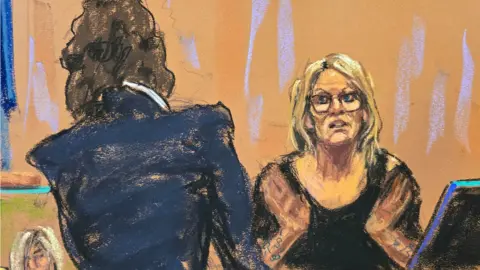
Mr Trump’s attorneys worked hard to limit Ms Daniels’ testimony.
While prosecutors pledged to tread lightly when quizzing her about the alleged sexual encounter at a hotel suite in Nevada in 2006, she still proved at times an uncontrollable witness, Judge Juan Merchan told the court. Mr Trump has denied having sex with her.
Her explicit testimony led to several unsuccessful mistrial motions from Mr Trump’s legal team and may have opened the door for an appeal, some legal experts said.
But others said that context helped prosecutors show why Mr Trump would be desperate to pay for her silence in order to protect his campaign.
“She got into some salacious details, which I thought went too far,” said Ms Rendelman. “But at the same time, the argument for the prosecution is the more salacious it is, the more Trump would want it to be shut down.”
Ultimately, Ms Daniels could only testify to what led up to the hush-money payment.
For the behind-the-scenes reimbursement, they had to rely on a problematic witness: a convicted felon who recently has made a living off attacking Mr Trump.
A calm and collected Cohen takes the stand
Members of the public held their breath earlier this week as Mr Trump’s former fixer-turned foe, Cohen, was called to the stand. Many anticipated the same character who authored fiery social media posts attacking Mr Trump, for whom he once pledged to take a bullet. But the man speaking in a blue suit and tie took them by surprise. Cohen appeared composed as he detailed his decades with Mr Trump.
“He is measured. He is reflective,” said Diane Kiesel, a former New York Supreme Court Justice and Manhattan prosecutor. “He has not let any bias or animus for Mr Trump show through.”
Cohen told the court of his initial admiration, working as Mr Trump’s personal attorney for 10 years. He acknowledged the lows as well, including lying on Mr Trump’s behalf, leading to regrets.
His composure boosted the prosecutors’ case, and his testimony was bolstered by a weak cross-examination from Mr Trump’s legal team on day one, experts said.
Mr Trump’s attorney, Todd Blanche, appeared disorganised at first, stumbling sometimes in his questioning, experts told the BBC.
But he appeared to make strides on the second day, Thursday, casting doubt on details of Cohen’s testimony, including an October 2016 phone call Cohen made to Mr Trump’s bodyguard in which he claimed to have to talked to Mr Trump about details of the hush-money payment.
It was a reminder of what experts said was one of prosecutors’ largest problems: Cohen’s credibility. The defence hammered home the point that Cohen is a convicted criminal, who spent time in prison after being convicted on several charges including lying to Congress.
Cohen was able to testify to a key part of prosecutors’ case – Mr Trump’s direct knowledge of the hush-money payment reimbursement scheme.
Cohen said former Trump Chief Financial Officer Allen Weisselberg – currently serving a perjury sentence at Rikers Island prison – decided to classify reimbursements from Mr Trump’s account as legal expenses. Cohen testified that he heard Weisselberg get the OK from Mr Trump himself.
As Cohen spoke, prosecutors also displayed the dozens of cheques, ledgers and invoices at the heart of the 34-count indictment.
But Cohen’s story may not sway all jurors.
“You are relying on a witness who in many respects … comes with a larger load of baggage than others,” Ms Rendelman said. “It makes it a bit more difficult to prove the case beyond a reasonable doubt.”
Connecting the dots
Other challenges remain for the prosecution.
In a relatively novel approach, the Manhattan District Attorney’s Office elevated falsifying business records charges to a felony by claiming Mr Trump did so with the goal of concealing another crime.
To prove their case, prosecutors must show intent – that Mr Trump illegally classified records for the purpose of aiding his campaign. Several witnesses seemed to corroborate this.
“He wasn’t thinking at all about [his wife] Melania,” Cohen told the court. “This was all about the campaign.”
But prosecutors must make this connection clear to the jury.
“Essentially they have to connect these payments to a motive that links them to a campaign,” said Ms Kiesel. “This requires a summation of a lifetime, because you really have to connect these dots.”
Mr Fletcher said prosecutors succeeded in doing so, with witnesses arguing the hush-money payment and reimbursement was not made to protect Mr Trump’s family.
“This was all about the election,” Mr Fletcher said. “If I was going to bet, I would bet on a conviction. But I don’t think it’s a slam dunk.”
In the end, the verdict could come down to jury selection, experts said.
The 12 members and six alternates were picked from hundreds who expressed a range of political views and familiarity with Mr Trump and this case.
Jury members are often unpredictable, Ms Kiesel said. “It only takes one person to decide that the people have not met their burden,” she said. “The people have 12 jurors to convince.”
(BBC)
Foreign News
Myanmar military announces temporary truce as quake death toll passes 3,000
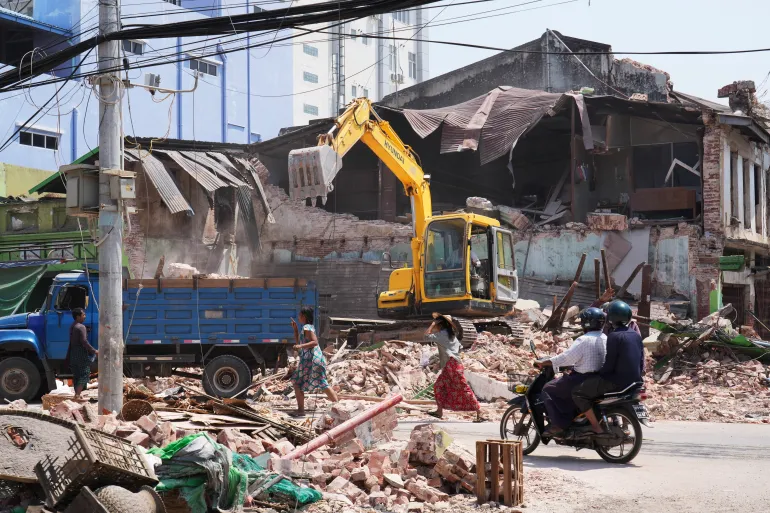
Myanmar’s governing military has declared a unilateral, temporary ceasefire in the country’s civil war to facilitate rescue efforts after last week’s powerful earthquake, as state television reported the death toll from the disaster had surpassed 3,000.
MRTV said that the truce would last from Wednesday until April 22 and was aimed at making quake relief efforts easier.
The announcement followed unilateral temporary ceasefires announced by armed resistance groups opposed to military rule. Those groups must refrain from attacking the state, or regrouping, or else the military will take “necessary” measures, the army said in a statement.
The death toll from the earthquake in Myanmar rose to 3,003, and more than 4,500 were injured, MRTV reported late on Wednesday.
In neighbouring Thailand, the death toll from the quake rose to 22, with hundreds of buildings damaged and 72 people missing.
In an incident underlining the challenge of delivering relief at a time of civil war in Myanmar, the military said its troops fired warning shots after a Chinese Red Cross convoy failed to pull over as it travelled in a conflict zone.
The Chinese Ministry of Foreign Affairs told the media that its rescue team and supplies were safe after the incident on Tuesday.
Guo Jiakun, a ministry spokesperson, said at a news conference that Beijing hoped “all factions and parties in Myanmar will prioritise earthquake relief efforts, ensuring the safety of rescue personnel and supplies from China and other countries”.
“It’s necessary to keep transportation routes for relief efforts open and unobstructed,” Guo said.

Military government spokesperson Zaw Min Tun said the Chinese Red Cross had not informed authorities it was in a conflict zone on Tuesday night, and a security team fired shots in the air after the convoy, which included local vehicles, failed to stop.
The military has struggled to run Myanmar following its coup against the elected civilian government of Nobel laureate Aung San Suu Kyi in 2021, reducing the economy and basic services, including healthcare, to tatters after civil war broke out.
The United Nations said more than 28 million people in the six regions were affected by the earthquake and that it put in place $12m in emergency funding for food, shelter, water, sanitation, mental health support and other services.
As hopes of finding more survivors were fading on Wednesday, rescuers pulled two men alive from the ruins of a hotel in Myanmar’s capital, Naypyidaw, and a third from a guesthouse in another city – five days after the magnitude 7.7 quake. But most teams were finding only bodies.
The rural parts of the hard-hit Sagaing region, mostly under the control of armed resistance groups fighting the military government, are among the most challenging for aid agencies to reach.
Earlier, Human Rights Watch urged the military government to allow unfettered access for humanitarian aid and lift curbs impeding aid agencies, saying donors should channel aid through independent groups rather than only the authorities.
“Myanmar’s junta cannot be trusted to respond to a disaster of this scale,” Bryony Lau, deputy Asia director at Human Rights Watch, said in a report. “Concerned governments and international agencies need to press the junta to allow full and immediate access to survivors, wherever they are.”
[Aljazeera]
Foreign News
Death sentence for three Americans over DR Congo coup attempt overturned
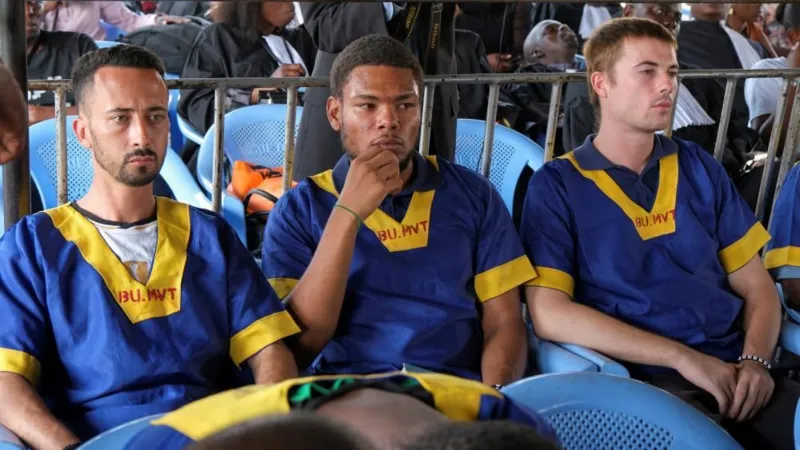
Three Americans convicted for their role in a failed coup in Democratic Republic of Congo last year have had their death sentences commuted to life imprisonment, the presidency has said.
They were among 37 people sentenced to death last September by a military court.
The three were accused of leading an attack on both the presidential palace and the home of an ally of President Félix Tshisekedi last May.
The overturning of the sentences comes ahead of a visit to DR Congo by the newly appointed US senior advisor for Africa, Massad Boulos.
Boulos, father-in-law to President Donald Trump’s daughter, Tiffany, is expected to arrive in Kinshasa on Thursday on a trip that will also take him to Rwanda, Kenya and Uganda.
The US has not declared the three Americans to be wrongfully jailed in DR Congo but the State Department said previously there have been talks between the countries over the matter.
The three were convicted of criminal conspiracy, terrorism and other charges, which they denied.
[BBC]
Foreign News
Netanyahu nominates new Israeli spy chief despite court order
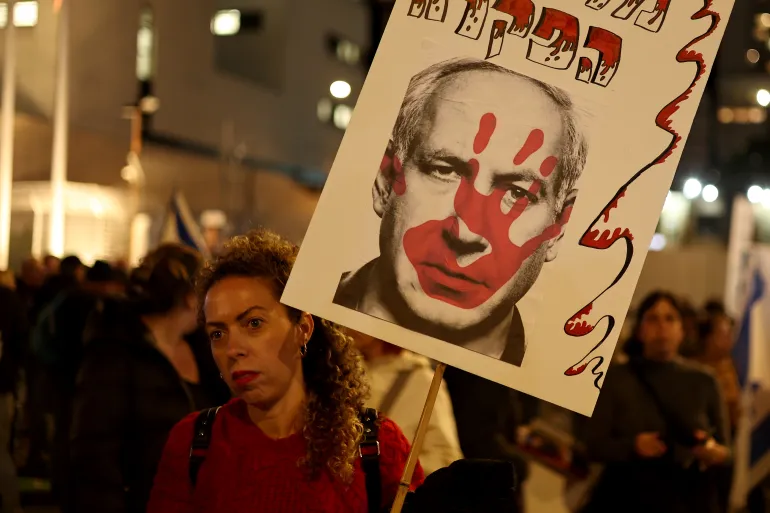
Israeli Prime Minister Benjamin Netanyahu has nominated a former Navy commander to head the country’s domestic security services, despite the courts having blocked his bid to fire the previous head of Shin Bet.
Netanyahu’s office announced on Monday that he had nominated Vice Admiral Eli Sharvit to lead the agency, which surveils attacks from abroad and at home, including by armed groups based in Palestine and Lebanon. However, a halt to the sacking of Ronen Bar as head of Shin Bet, ordered by the Supreme Court, remains in place.
[Aljazeera]
-

 News4 days ago
News4 days agoBid to include genocide allegation against Sri Lanka in Canada’s school curriculum thwarted
-

 Sports5 days ago
Sports5 days agoSri Lanka’s eternal search for the elusive all-rounder
-

 News6 days ago
News6 days agoGnanasara Thera urged to reveal masterminds behind Easter Sunday terror attacks
-

 Sports1 day ago
Sports1 day agoTo play or not to play is Richmond’s decision
-

 News5 days ago
News5 days agoComBank crowned Global Finance Best SME Bank in Sri Lanka for 3rd successive year
-

 Features5 days ago
Features5 days agoSanctions by The Unpunished
-

 Features5 days ago
Features5 days agoMore parliamentary giants I was privileged to know
-

 Latest News3 days ago
Latest News3 days agoIPL 2025: Rookies Ashwani and Rickelton lead Mumbai Indians to first win


